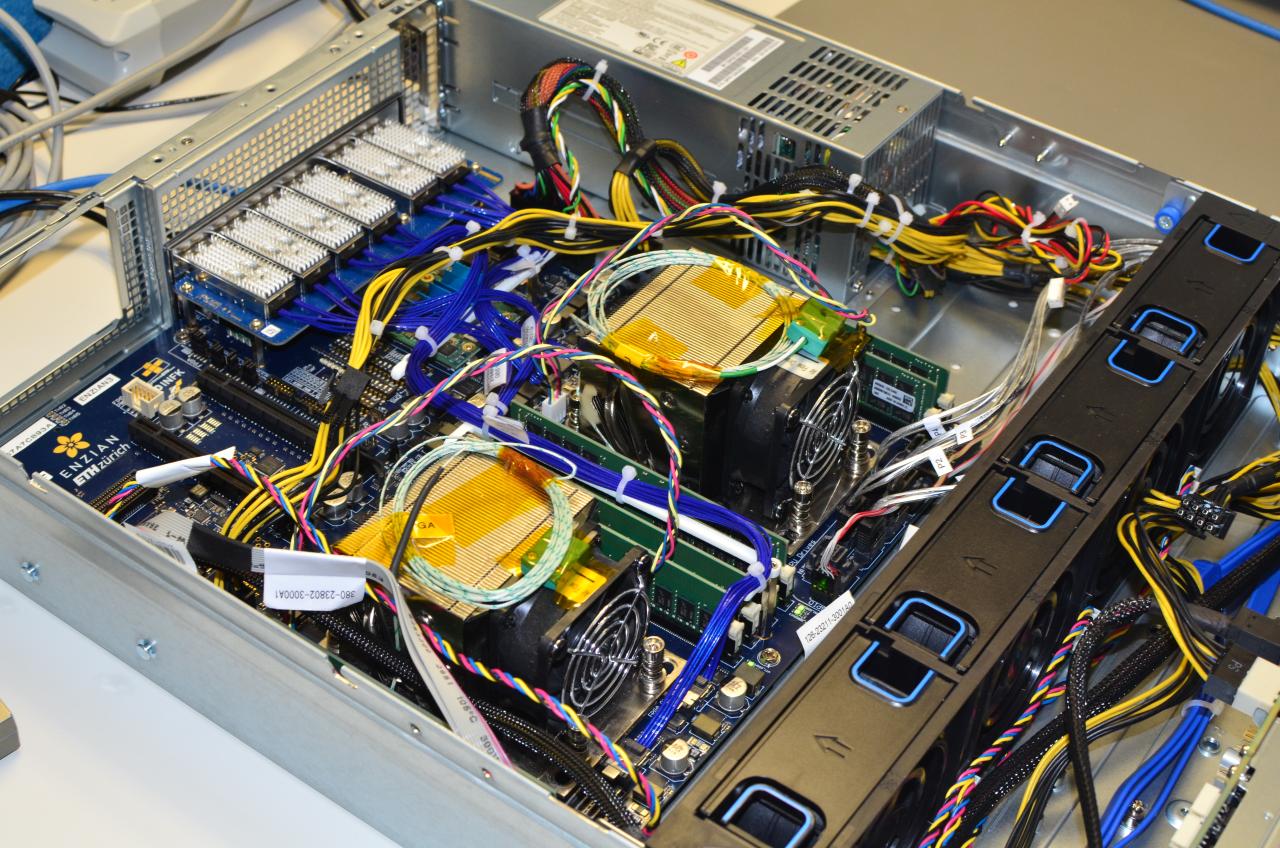Enzian is a research computer built by the Systems Group at ETH Zurich.
As a research computer, Enzian is designed for computer systems software research and deliberately over-engineered. Enzian has a big server-class CPU closely coupled to a large FPGA, with ample main memory and network bandwidth on both sides.
If you want to cite Enzian in your work, use the citation for our ASPLOS 2022 paper. You can find the bibtex citation on our FAQ page.
Several institutions are already using Enzian. If you think your work could benefit from Enzian contact us at enzian-contact@lists.inf.ethz.ch.
How to make a fully-fledged Local Memory Bus (LMB) IP in Vivado
This is a general tutorial on making LMB IPs in Xilinx Vivado. We gained such experience when working on projects using Enzian.
Enzian at the seL4 Summit 2022
The seL4 Summit took place earlier this month in Munich, and the Enzian team was represented by Daniel Schwyn, giving a talk about Trustworthy BMCs (recording available here).
RISC-V on Enzian
Thanks to the hard work of a bachelor’s student, Diego de los Santos, we have brought up the Rocket RISC-V core on the Enzian’s FPGA. We are able to load an image from the CPU side, across ECI, directly into the FPGA’s DRAM. We can then boot into Linux on the RISC-V core. While clock speed is obviously limited in the FPGA implementation (currently 100MHz) this is still many orders of magnitude faster than RTL simulation. This allows us to run more realistic, larger memory benchmarks on RISC-V. We can then examine power and performance implications of various microarchitectural changes.

We built Enzian to have a platform for our research into operating systems, databases, hardware acceleration, machine learning, networking, and high-performance computing, and because there was nothing comparable out there that we could get hold of otherwise.
Now that it works, we’d like to make Enzian systems available to the rest of the research community. If you want to work with Enzian, or if you might be able to help us make it more widely available, please contact us!